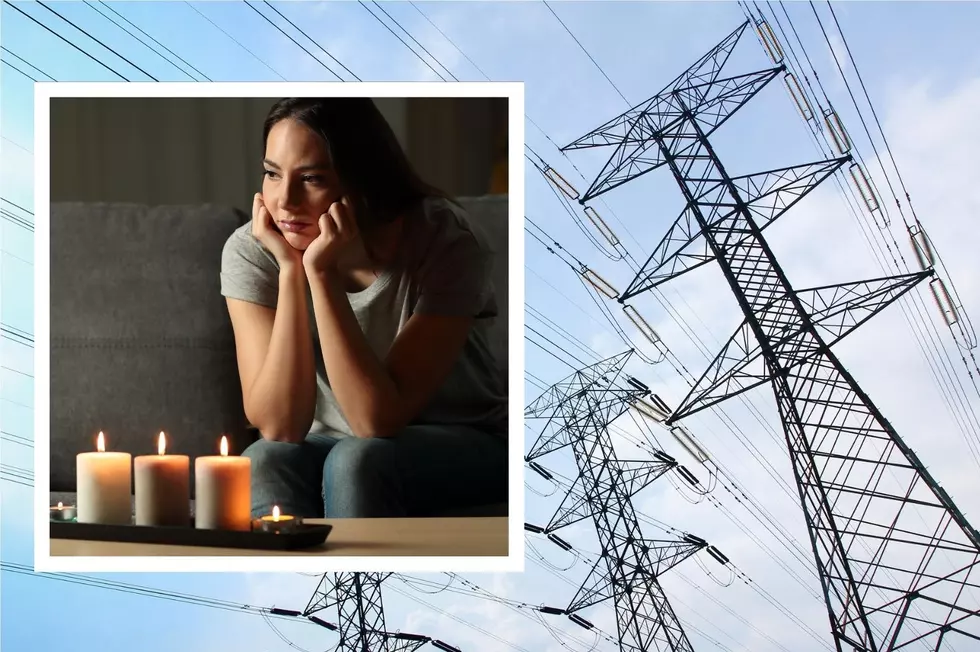
Blackouts Could Be Rolling Through South Dakota, Minnesota and Iowa This Summer
Summer power outages are looking increasingly likely in a number of Midwest states, including South Dakota, Minnesota, and Iowa.
The North American Electric Reliability Corporation (NERC) is reporting that a number of factors could disrupt the power supply throughout large parts of the U.S this summer, especially during July and August.

According to News Nation Now, regulators are warning that a perfect storm for potential summer blackouts could affect the Midwest. These include drought, supply chain issues, foreign conflicts (the war in Ukraine), heat, and even possible cyber attacks.
Much of the Midwest is served by one of two regional organizations that operate the power grids. They are Midcontinent Independent System Operator (MISO) which covers the eastern part of South Dakota, as well as Minnesota, and Iowa, and Southwest Power Pool which covers the rest of South Dakota.
Could South Dakota, Minnesota, and Iowa get hit by summer blackouts?
According to NERC, Minnesota and Iowa are considered at "High Risk" for power outages in the warmest months of the year. South Dakota is split between the two organizations, with the west under "Miodert Risk," and the east joining MN and IA under "High Risk."
Many states under the Midcontinent Independent System Operator (MISO), such as Arkansas, Louisiana, Michigan, Wisconsin, Iowa, Minnesota, Iowa, Illinois and Indiana are either entirely or partly at high risk.
The core of the problem is that this summer the demand for electricity could outpace the supply. Especially during the hot months of July and August when air conditioning puts an extreme strain on the system.
As demand peaks in different areas of the power grip, other places may have to work through a rolling blackout to reestablish balance on the power grid.
How You Can Help Save Energy This Summer
There are some simple ways you can help ease the burden on local power grids. These include turning off lights, limiting water usage (especially when shaving or brushing your teeth), unplugging unused electronics, turning off your air conditioner when you're not at home, and finally, running full loads of laundry on the cold cycle.
How To Prepare for Blackouts in South Dakota, Minnesota, and Iowa:
Whether they are caused by an overburdened power grid or by severe weather, blackouts happen. So, while it's important to try to reduce your electricity usage, you should also prepare for the worst.
The US Department of Energy offers these tips on preparing for blackouts:
- Keep a flashlight in each room of your house and in your office. Keep plenty of batteries on hand, too, or consider light sticks or a motion powered flashlight that does not need batteries.
- Keep candles and/or oil lamps on hand for light. Don't forget matches! Also, do not light candles and/or oil lamps if there is a possibility of a gas leak in your home.
- Keep the emergency number for your electric utility handy in case you need to call.
- Keep an ice chest readily available to store medications that must remain cold. Store ice packs in your freezer and ready for the ice chest.
- If you use electricity for your water, such as a well with an electric pump, have enough water available to last a couple of days. You should have at least a gallon of drinking water a day for each person in your house for drinking and cooking. Non-potable water uses, such as water for flushing toilets, can be met with water from rain catchment barrels.
- Have sustainably sourced disposable utensils and dinnerware on hand so you do not need to use water to wash dishes.
- Keep the pantry stocked with some easy-to-open, non-perishable foods that require no cooking.
- If you want to have a backup generator, make sure it is installed by a licensed electrician. Check with your local building department to see if a permit is needed. Make sure the system has an automatic breaker that disconnects the house from the power company's regular electricity lines when it is running. This prevents electricity from leaking back into the grid and making it dangerous for utility workers. Conduct regular maintenance to make sure it is in working order.
- If you have an outdoor gas grill keep the gas tank full, or if it is an open burning grill make sure to have plenty of charcoal or wood on hand. A grill can be handy to cook while the power is down.
- Keep a household first aid kit and a disaster preparedness backpack kit in case something happens.
- Have a household disaster plan that you and your family can follow if something occurs.
Sources: News Nation Now, CNET, Argus-Leader via Yahoo, US Department of Energy
MORE FROM RESULTS-TOWNSQUARE MEDIA SIOUX FALLS:
- SEE: Going To Yankton, South Dakota? Check Out These Murals
- Before ‘Man Men’ January Jones Served Blizzards To Sioux Falls
- If You Have A Bird Feeder In Sioux Falls, Clean It Right Now
- Sensational South Dakota Mansion a ‘Heck Of A Deal’
TIPS: Here's how you can prepare for power outages
KEEP READING: What to do after a tornado strikes
More From KSOO-AM / ESPN Sioux Falls









